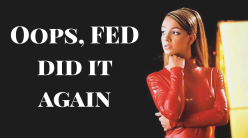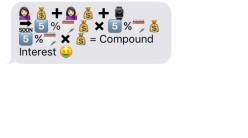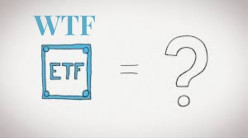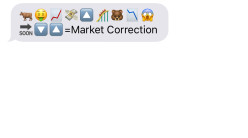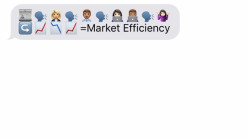Let us break this down
1. You invest money
2. This goes into an ETF that has no minimum
3. The ETF consist of “cuts” of companies
4. Like Tennis balls, Basketballs, footballs, and volleyballs
5. This all equals 1 ETF, so you own parts of companies
6. You feel blessed because the expenses are low
7. This all equals an ETF
Now let us piece this together, you decide to invest some money in an ETF, the ETF has a NO MINIMUM investment and divides your money like a mutual fund into separate companies represented by sports like tennis balls, basketballs, footballs and volleyballs. Now by being in an ETF you own a little piece of all these companies, which diversifies your risk because it is all owned by the one ETF you buy, and the best thing is you feel blessed because the expense ratios of an ETF are way lower than a mutual fund.
SO WTF is an ETF?
ETF's or (Electronic Traded Funds) are like Mutual Funds. To refresh your memory, it is a collection of assets that help you invest in a diversified portfolio.
Such as, stocks, bonds, gold, foreign currency, basically any asset. But the main difference is that you own parts of everything, which spreads your risk and allows for a greater diversification. Imagine Roulette? Now you can put money on a few numbers (Stocks) or you can put money on “All the Black” or “Number 1-12” you are still getting the chances of winning off the number but you have also allowed for a greater diversification with the same amount of money.
Now, since ETF’s are heard of less than Mutual Funds, you probably think it is the ugly stepsister or something that is not recommended to invest in, but in reality it is the exact opposite
•Less internal cost (meaning less fee’s and more money in your pocket)
•Traded throughout the day like a stock (Unlike Mutual Funds, which are based on something called Net Asset Value)
•No minimum investments (Mutual Funds often have a minimum of $2,500)
•Improved Tax Control (You have more control of the your money unlike in Mutual Funds
ETFs are often used in an efficient market and help reduce the cost to the investor, which is huge, especially if you are starting out, you don’t want to pay extra fees that you do not have to, and you want a fairly straight forward transparent portfolio and this is where ETFs really pay off.
This ETF strategy has taken off the last few years and is what the typical robo-platform uses like betterment, our partnered advisers at 20/20 Financial have created low ETF funds that are focused on low cost and high dividends.

